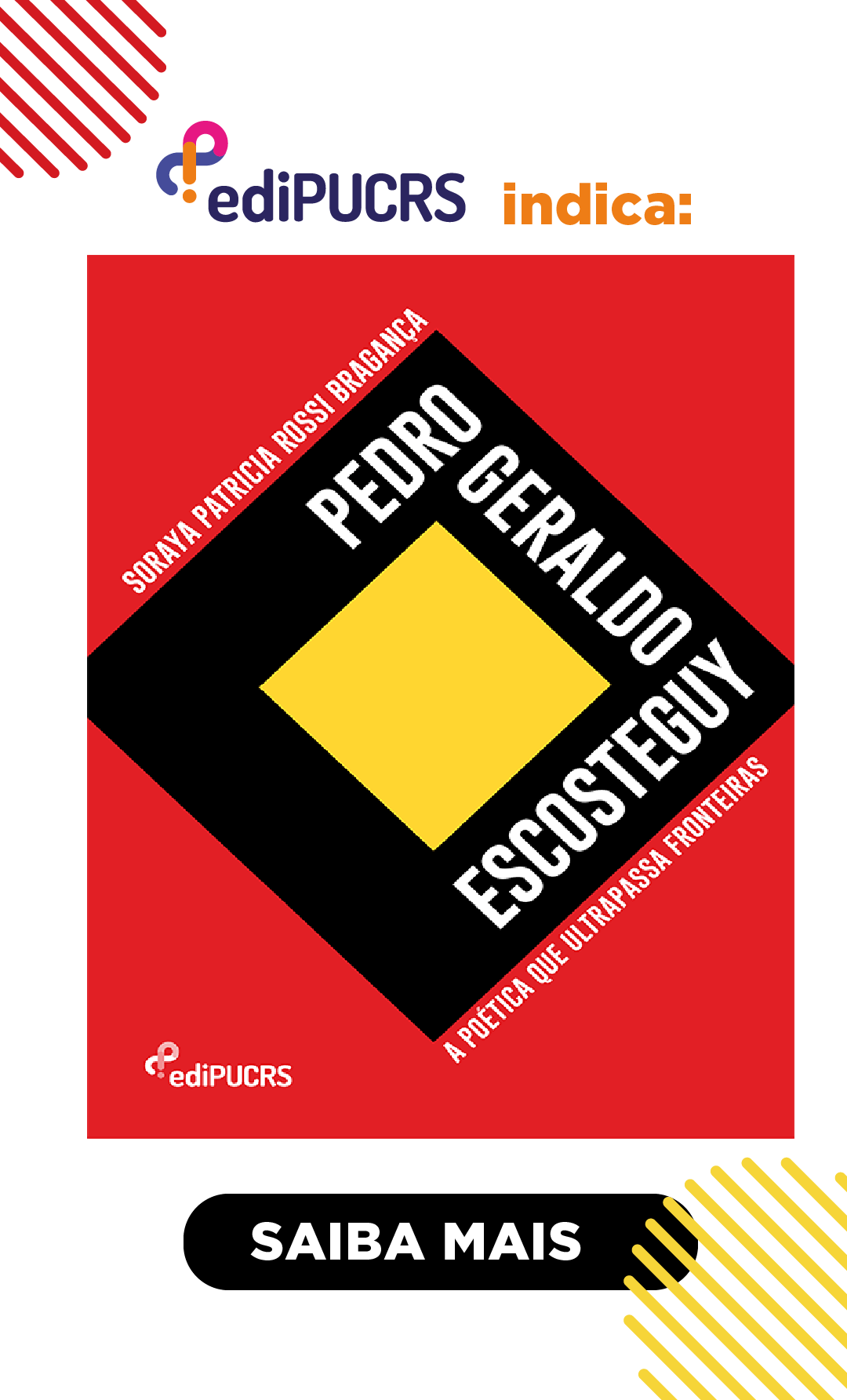The shadow of himself
The romantic irony as hermeneutic key to Dom Casmurro’s free form
DOI:
https://doi.org/10.15448/1983-4276.2022.1.43038Keywords:
Machado de Assis, Dom Casmurro, free form, romantic ironyAbstract
The present paper provides an interpretation of Dom Casmurro, advancing as critical hypothesis an attempt to read the novel’s formal fragmentation, one of the characteristics of Machado de Assis’s so called free form, as a mimesis of the subjective structure of Bento Santiago, the novel’s ficcional author, understood from the perspective of romantic irony, as it was theoretically developed by Friedrich Schlegel (1973). In critical dialogue with the works of Roberto Schwarz (1977, 1990), José Guilherme Merquior (1978), Sá Rego (1989), Rouanet (2007), we have researched the different hermeneutical approaches the free form has received, in order to propose the specificity of our own interpretation. Having analyzed Schlegel’s texts and the secondary bibliography on romantic irony, we conclude that Bento Santiago’s narrative situation is concretized within the very novel’s free form, whose fragmentation and highly subjective nature expresses the paradox which constitutes romantic irony: the necessity and impossibility of an absolute communication.
Downloads
References
ASSIS, Machado de. Dom Casmurro. São Paulo: Penguin & Companhia das Letras, 2016.
BAPTISTA, Abel Barros. Autobibliografias: solicitação do livro na ficção de Machado de Assis. Campinas: Ed. da Unicamp, 2003.
BOSI, Alfredo. Machado de Assis: o enigma do olhar. São Paulo: Ática, 1999.
CALDWELL, Hellen. O Otelo brasileiro de Machado de Assis. Tradução de Fábio Fonseca de Melo. São Paulo: Ateliê Editorial, 2008.
CANDIDO, Antonio. Esquema de Machado de Assis. In: CANDIDO, Antonio. Vários Escritos. São Paulo: Duas Cidades, 1970. p. 15-32.
COSTA LIMA, Luiz. Sociedade e discurso ficcional. In: COSTA LIMA, Luiz. Trilogia do Controle. Rio de Janeiro: Topbooks, 2007.
FRANK, Manfred. Einführung in der frühromantischen ästhetik. Vorlesungen. Berlim: Suhrkamp Verlag. 1989.
MAIA NETO, José Raimundo. O ceticismo na obra de Machado de Assis. São Paulo: Annablume, 2007.
MEDEIROS, Luz Constantino de. A Invençãção da Modernidade Literária. Belo Horizonte: Iluminuras, 2018.
MERQUIOR, José Guilherme. Gênero e estilo das Memórias Póstumas de Brás Cubas. Colóquio/Letras, [S. l.], n. 8, p. 12-20, 1972.
PESSOA, Patrick. A segunda vida de Brás Cubas: a filosofia da arte de Machado de Assis. Rio de Janeiro: Rocco, 2008.
ROUANET, Sergio Paulo. Riso e melancolia: a forma shandiana em Sterne, Diderot, Xavier de Maistre, Almeida Garrett e Machado de Assis. São Paulo: Companhia das Letras, 2007.
SANTIAGO, Silviano. Retórica da verossimilhança. In: SANTIAGO, Silviano. Uma literatura nos trópicos. São Paulo: Perspectiva, 1978. p. 27-47.
SÁ REGO, Enylton de. O Calundu e a Panacéia: Machado de Assis, a sátira menipeia e a tradição luciânica. Rio de Janeiro: Forense Universitária, 1989.
SCHLEGEL, Friedrich. Fragmente. In: SCHLEGEL, Friedrich; HASS, Hans-Egon; MOHRLÜDER, Gustav-Adolf (org.). Ironie als literatische phänomen. Köln: Kiepenheuer & Witsch, 1973. p. 287-303.
SCHWARZ, Roberto. Duas meninas. São Paulo: Companhia das Letras, 1997.
SCHWARZ, Roberto. Um mestre na periferia do capitalismo: Machado de Assis. São Paulo: Duas Cidades, 1990.
SCHWARZ, Roberto. Ao vencedor as batatas. São Paulo: Duas Cidades, 1977.
SELIGMANN-SILVA, Márcio. Ler o Livro do Mundo: Walter Benjamin, Romantismo e crítica literária. São Paulo: Iluminuras, 1999.
STROHSCHNEIDER-KOHRS, Ingrid. Die Romantische Ironie in Theorie und Gestaltung. Berlim: De Gruyter, 2002.
TORRES FILHO, Rubens Rodrigues. Novalis: o romantismo estudioso. In: NOVALIS, Friedrich von Hardenberg. Pólen: fragmentos, diálogos, monólogo. Tradução de Rubens Rodrigues Torres Filho. São Paulo: Iluminuras, 2001.
Downloads
Published
How to Cite
Issue
Section
License
Copyright (c) 2022 Navegações

This work is licensed under a Creative Commons Attribution 4.0 International License.
Copyright
The submission of originals to Navegações implies the transfer by the authors of the right for publication. Authors retain copyright and grant the journal right of first publication. If the authors wish to include the same data into another publication, they must cite Navegações as the site of original publication.
Creative Commons License
Except where otherwise specified, material published in this journal is licensed under a Creative Commons Attribution 4.0 International license, which allows unrestricted use, distribution and reproduction in any medium, provided the original publication is correctly cited.





